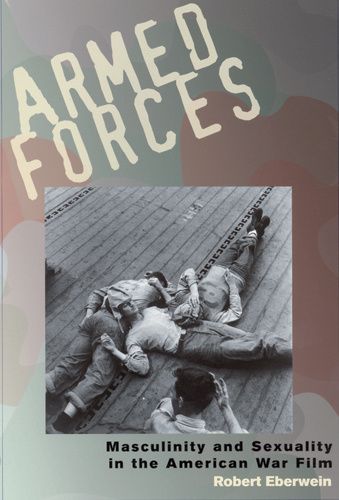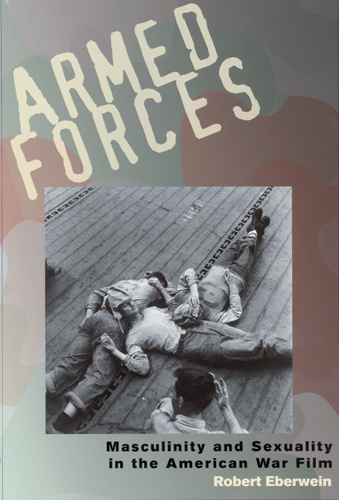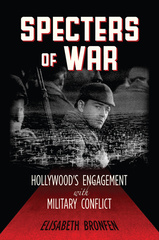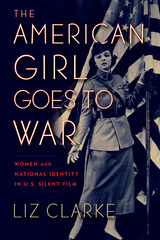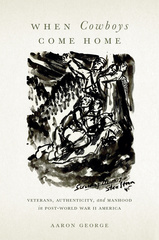Armed Forces
Masculinity and Sexuality in the American War Film
In war films, the portrayal of deep friendships between men is commonplace. Given the sexually anxious nature of the American imagination, such bonds are often interpreted as carrying a homoerotic subtext. In Armed Forces , Robert Eberwein argues that an expanded conception of masculinity and sexuality is necessary in order to understand more fully the intricacy of these intense and emotional human relationships. Drawing on a range of examples from silent films such as What Price Glory and Wings to sound era works like The Deer Hunter, Platoon, Three Kings, and Pearl Harbor , he shows how close readings of war films, particularly in relation to their cultural contexts, demonstrate that depictions of heterosexual love, including those in romantic triangles, actually help to define and clarify the nonsexual nature of male love. The book also explores the problematic aspects of masculinity and sexuality when threatened by wounds, as in The Best Years of Our Lives, and considers the complex and persistent analogy between weapons and the male body, as in Full Metal Jacket and Saving Private Ryan .
Perceptive and engaging, Eberwein's examination of depictions of masculinity in war films goes beyond the commonplace in criticism that merely conflates friendship with homoeroticism—an important topic that will command significant interest.
Robert Eberwein's compelling study, Armed Forces, offers and interesting case study of this cultural phenomenon of fluid gender in a context that is traditionally associated with hyper-masculinity. The overall impression of this excellent study is one of a much more complicated gender coded cinema than previously attributed to war films. Professor Eberwein revisits with close analysis many classic war films, enters the murky realm of gender, and yet allows us to understand and appreciate these films without the binary reductions that traditionally shape notions of gender and sexuality.
Perceptive and engaging, Eberwein's examination of depictions of masculinity in war films goes beyond the commonplace in criticism that merely conflates friendship with homoeroticism—an important topic that will command significant interest.
Robert Eberwein's compelling study, Armed Forces, offers and interesting case study of this cultural phenomenon of fluid gender in a context that is traditionally associated with hyper-masculinity. The overall impression of this excellent study is one of a much more complicated gender coded cinema than previously attributed to war films. Professor Eberwein revisits with close analysis many classic war films, enters the murky realm of gender, and yet allows us to understand and appreciate these films without the binary reductions that traditionally shape notions of gender and sexuality.
Acknowledgments
Introduction
1 Paradigms of the Silent Era
2 Beyond Triangles
3 Disavowing Threats
4 Wounds
5 Drag
6 "Don't Ask, Don't Tell"
7 Bodies, Weapons
8 Fathers and Sons
Conclusion: Buddies Then and Now
Notes
Selected Bibliography
Index

